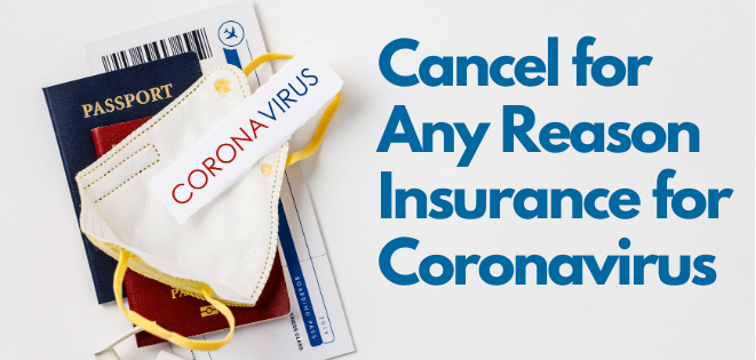Five things to keep in mind when deciding whether to purchase CFAR.

With ever-changing travel rules and regulations, frequently delayed or canceled flights and cruises, border closures, and the omnipresent risk of Covid, travel insurance has become a necessary consideration when planning travel.
Given the number of pandemic-related exceptions and exclusions in regular travel insurance policies, more travelers have been purchasing “cancel for any reason” travel insurance. Typical CFAR policies allow travelers to be reimbursed in the event they choose to cancel their trip out of caution, fear, or other personal reasons unrelated to illness or accident.
Is CFAR travel insurance right for you? How affordable and reliable are such policies? Here are five things to keep in mind when deciding whether to buy CFAR travel insurance.
1. You can really cancel for any reason at (almost) any time.
While CFAR travel insurance is much more comprehensive than regular travel insurance, every policy has particular rules (and some exclusions) when it comes to reimbursement for cancellation. As with all insurance policies, it’s critical to read the fine print of the policy prior to purchase. Every company’s policy is going to be different, and many companies have several products within the CFAR category. Do your research to ensure you get the coverage you’re looking for.
For example, most CFAR policies have specific required timing for purchase; typically the policy must be bought within a couple of weeks of booking the trip. And a refund may be available only if you cancel at least a certain number of days before a trip is set to begin. Further, most CFAR policies do not refund trip expenses if a tour operator cancels a trip, because the policyholders should be able to obtain a refund from the operator.
All that said, if you meet the terms in terms of purchase and cancellation, you should receive the agreed-upon refund no matter the reason. Claims for trips cancelled because a pet became ill or the traveler feared catching Covid have been honored.
2. CFAR costs more.
CFAR policies typically cost about 40-50% more than standard travel insurance policies. A quick search showed a standard travel insurance policy on a $10,000 trip to Europe would cost $575; adding CFAR to the policy upped the rate to $828. (Note: Prices and coverage vary widely by firm and coverage.) It’s up to you to balance the cost versus peace of mind. Your personal situation may make it more likely you’ll cancel a trip for a reason not covered under a typical policy, so CFAR may be worth it. On the other hand, more traditional travel insurance policies are starting to include expanded health coverage, which you may decide is all you need.
3. Anyone can buy CFAR insurance—even New Yorkers.
While CFAR is widely available, it has historically been prohibited to residents of New York. (The state’s Department of Financial Services had declared that “CFAR benefits in the travel context do not technically qualify as insurance because the cancellation of a trip ‘for any reason’ does not depend on the occurrence of fortuitous event.”) But in March, 2020 the department issued an Insurance Circular Letter that revised the rule, stating CFAR benefits can be sold by an insurer in New York if “necessary or incidental to its travel insurance business.” The revision also mentions non-insurers can sell CFAR benefits “if they are not sold as an insurance product.
Despite these rulings, many insurance firms still do not offer CFAR policies in New York. The CFAR policy terms of those who do may differ from the terms of the policies they offer in other states. If you’re worried about the terms of coverage, you may want to speak directly with an insurance agent if you’re looking to buy CFAR insurance as a resident of New York.
4. You don’t necessarily need CFAR to cover Covid-related cancellations.
Many new travel insurance products have been created with Covid in mind, with many older policies now including some form of Covid coverage, including cancellations and interruptions because a traveler contracted Covid, denied boarding due to suspected illness, and mandatory personal quarantines. So if you’re worried mainly about Covid, medical-only travel insurance may be a cheap and decent option to CFAR. Note: If you want the option to cancel due to fear of catching Covid, a CFAR policy is the way to go.
5. CFAR insurance doesn’t cover your trip expenses in full.
CFAR policies typically cover 75% of the insured trip cost, with some policies refunding just 50% of the initial travel booking.
Twist’s Take: While CFAR travel insurance can provide peace of mind and partial financial coverage for travelers planning trips during these uncertain times, many standard travel insurance policies have expanded their terms to include pandemic-specific coverage. No matter which option you choose, be sure to read the fine print!
